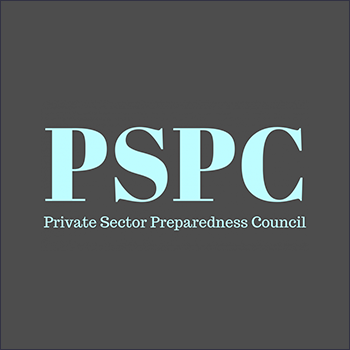
Be Prepared
Preparedness Planning for Your Business
Businesses and their staff face a variety of hazards:
- Natural hazards such as floods, fires, and earthquakes.
- Health hazards such as widespread and serious illnesses such as the flu.
- Human-caused hazards including accidents and acts of violence.
- Technology-related hazards such as power outages, cyber security threats, and equipment failure.
There are things a business owner can do to prepare their organization for the most likely hazards. The Ready Business program helps business leaders make a preparedness plan to get ready for these hazards.
- What is Be Ready Business?
- 15 Points of Business Continuity Planning
- How to Start and Maintain a Private Sector Preparedness Council
- Be Ready Business Recognition Program
- Be Ready Business Toolkit (Google Drive)
- Business Continuity Self Assessment Checklist
- Business Continuity Planning Suite
- Business Impact Analysis
- Property Protection Checklist
- Ready.gov Business
- Risk Mitigation
- Survey Your Workplace for Additional Hazards – OSHA Compliance Assistance Quick Start for General Industry
- Workplace Violence—Issues in Response – Federal Bureau of Investigation
- Utah’s Be Ready Business/Private Sector Preparedness Calendar
 A Private Sector Preparedness Council (PSPC) is a coalition of leaders that plan & carry out events and initiatives, and provides a support forum that promotes the disaster resilience of the private sector within your community. The PSPC mission is to foster economic resilience to disasters via readiness of the private sector. The PSPC leadership commonly includes the local municipal Emergency Manager, local Chamber of Commerce, Municipal Economic Development Office, interested Private Sector leaders, and community volunteers interested in supporting the PSPC. Not all private sector entities need be continuously involved with their local PSPC, but the PSPC leadership commonly supports the private sector community in the following ways:
A Private Sector Preparedness Council (PSPC) is a coalition of leaders that plan & carry out events and initiatives, and provides a support forum that promotes the disaster resilience of the private sector within your community. The PSPC mission is to foster economic resilience to disasters via readiness of the private sector. The PSPC leadership commonly includes the local municipal Emergency Manager, local Chamber of Commerce, Municipal Economic Development Office, interested Private Sector leaders, and community volunteers interested in supporting the PSPC. Not all private sector entities need be continuously involved with their local PSPC, but the PSPC leadership commonly supports the private sector community in the following ways:
- Provides network opportunities.
- Supports the private sector in identifying their needs and capabilities.
- Supports private sector efforts to develop their Business Continuity Plans.
- Supports local Emergency Manager efforts to coordinate private sector and municipal emergency plans.
- Plans and organizes disaster preparedness training and educational events for the private sector.
- Connects the private sector with the latest and greatest tools and information on disaster preparedness.
- Involves the private sector in local emergency drills, exercises, and service opportunities.
How to Start and Maintain a PSPC
PSPC’s are generally comprised of a smaller group of leaders to plan and organize events or initiatives for the private sector community, therefore it is not expedient to expect all the private sector to be involved in every aspect of the PSPC. Rather the PSPC invites the private sector to participate in planned events or initiatives.
Starting A PSPC
- Obtain municipal approval, and local Chamber of Commerce support if applicable.
- Identify members of the council: This generally involves the local municipal Emergency Manager, local Chamber of Commerce, Municipal Economic Development Office, interested Private Sector leaders, and community volunteers interested in supporting the PSPC. Often your local Utilities have a keen interest in supporting this.
- Define all PSPC administrative activities
- Assign administrative activities to specific PSPC leaders. Often times volunteers can support many of these activities.
- Start planning things and reaching out to the private sector to invite them to your PSPC planned events or to participate in PSPC initiatives.
- Connect with the municipal Whole Community Coalition or Citizen Corps Council to coordinate efforts with other community sectors. Typically the primary PSPC leader or designated other would be the person to attend these meeting on behalf of the PSPC and represent PSPC emergency plans, needs and capabilities, and events and initiatives, and subsequently share with PSPC constituants information obtained from the Whole Community Coalition or Citizen Corps Council meetings.

Common PSPC Administrative Activities
- Record keeping
- Create and maintain an accurate contact list (email distribution list, and council leaders contact list).
- Web-page management- if your PSPC has a website.
- Outreach efforts: connecting with private sector entities in your community.
- Invitations: sending emails, calendar invites, or making phone calls to invite private sector entities to participate in PSPC events.
- Making flyers or invitationals for distribution
- Social Media Management- if your PSPC has social media.
- Making meeting or event agendas.
- Keeping meeting minutes.
- Managing and tracking expenditures- if your PSPC has funding sources.
- Define and carry out PSPC events and initiatives
Possible PSPC Activities/Events
- Private sector needs and capabilities identification initiative: Build a way to capture needs and capabilities and then point your local private sector there to self identify their needs and capabilities. These needs and capabilities can then be integrated into local municipal emergency plans.
- Business Continuity Planning Training’s/Workshops or one on one consultations: You can do this with the provided tools in the Business Continuity Planning webpage, or contact the State for support if needed (801-538-3400, [email protected])
- Supply chain mapping.
- Disaster preparedness topic seminars or educational events: There are a lot of preparedness topics, choose the ones that interest your local private sector partners.
- Private sector engagement with LEPC HazMat planning efforts (as applicable).
- Connect critical infrastructure partners with the Utah Public Private Partnership (UP3) initiatives
- Invitations for private sector employees to attend local preparedness fairs or events or take preparedness related training’s (CERT, Stop The Bleed, Active Shooter, etc.).